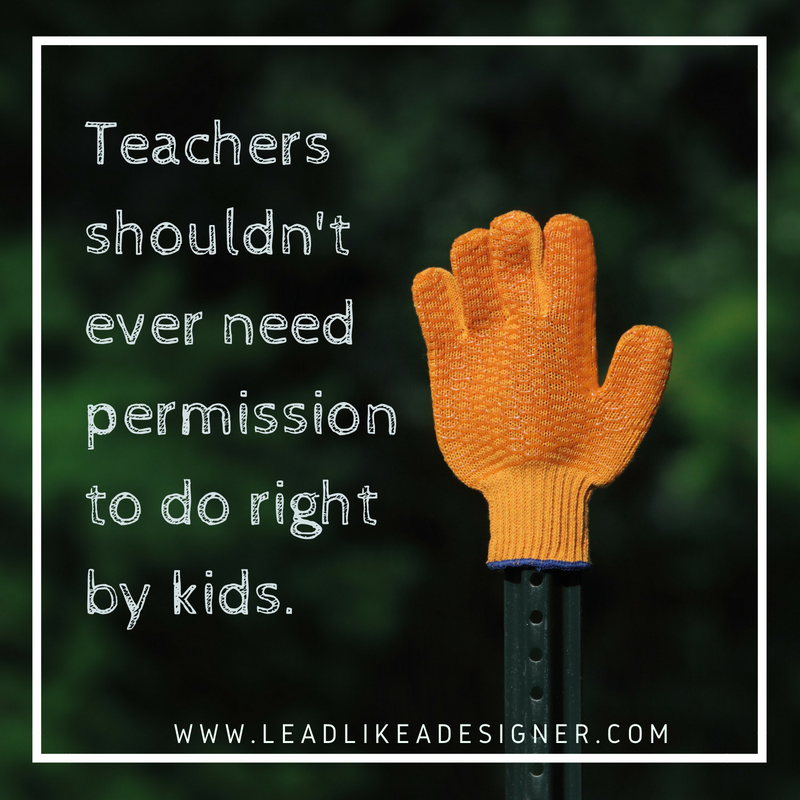In the midst of the last week of school chaos, I find myself being very reflective about the year. I am filled with deep gratitude and appreciation for teachers. I love seeing students walking to school with cards, flowers, and gifts for their teachers who deserve this appreciation and so much more. Do we appreciate and celebrate teachers enough through the school year? Do our current methods of appreciation and support encourage teachers to stick with the status quo? How might we shift our support if we are hoping teachers will join us in reimagining learning for students? What would it look like if we supported and empowered teachers to no longer conform to an archaic school system?
As Ted Dintersmith details in his latest book, “What Should Could Be: Insights & inspiration from Teachers Across America” innovative teachers all over America are bucking the system and showing us the way forward, they are refusing to conform to practices that don’t meet the needs of students. While inspiring to read about these “rulebreaker” teachers, rule-breaking isn’t always received well within school communities. Education isn’t alone, most industries don’t welcome those who challenge their long standing wisdom or practices. If we are going to ask our staff and faculty to intentionally challenge the way we have always done things, then we must also support and empower them.
Reflecting back on my time as a school leader, here are three strategies that I found useful to both support and empower teachers who were ready to shake things up:
Give Permission - As silly as it sounds give teachers explicit permission to question and rattle the collective mindset. Teachers may experiment, but they are unlikely to challenge the status quo without the support of the school leader. And while talking about permissions, teachers shouldn’t ever need permission to: make the best instructional decisions for students in their class, be learners in front of their students, or take risks that benefit students. This is only the beginning of what could be a very long list, but you get the idea. What permissions do you need to give your teachers?
Be Explicit About What Outdated Practices Can Be Left Behind - Remember that memo was that sent out 5 years ago detailing a testing protocol for math facts? Me either, but some administrators and teachers do. With the best of intentions, they will follow the established rules until they are told otherwise. Explicitly communicate which practices can be thrown out to create space for new ones. Or even better, are there outdated practices you might encourage your teachers to question?
Provide Air Cover - The idea of air cover comes from the military world. It essentially means that aircraft are used to provide protection for ground forces when they are engaged in a difficult operation against possible enemy attacks. While teachers may not be physically attacked, those in our schools who are making changes can sometimes feel under attack from parents, the central office or even sadly, from their colleagues. Where can you provide air cover for those making changes at your school?
Knowing there are big challenges ahead for all educators, let’s support and empower our teachers to question rules, traditions, and practices. A school leader questioning “the way we have always done things” can be very powerful, but imagine if EVERY teacher at a school was engaged in the same process. So yes, let’s celebrate our teachers for providing another year of learning for kids, but more importantly, let’s empower and support them to teach outside the lines. Collective and intentional rule-breaking can help us step into the universe of possibility.






